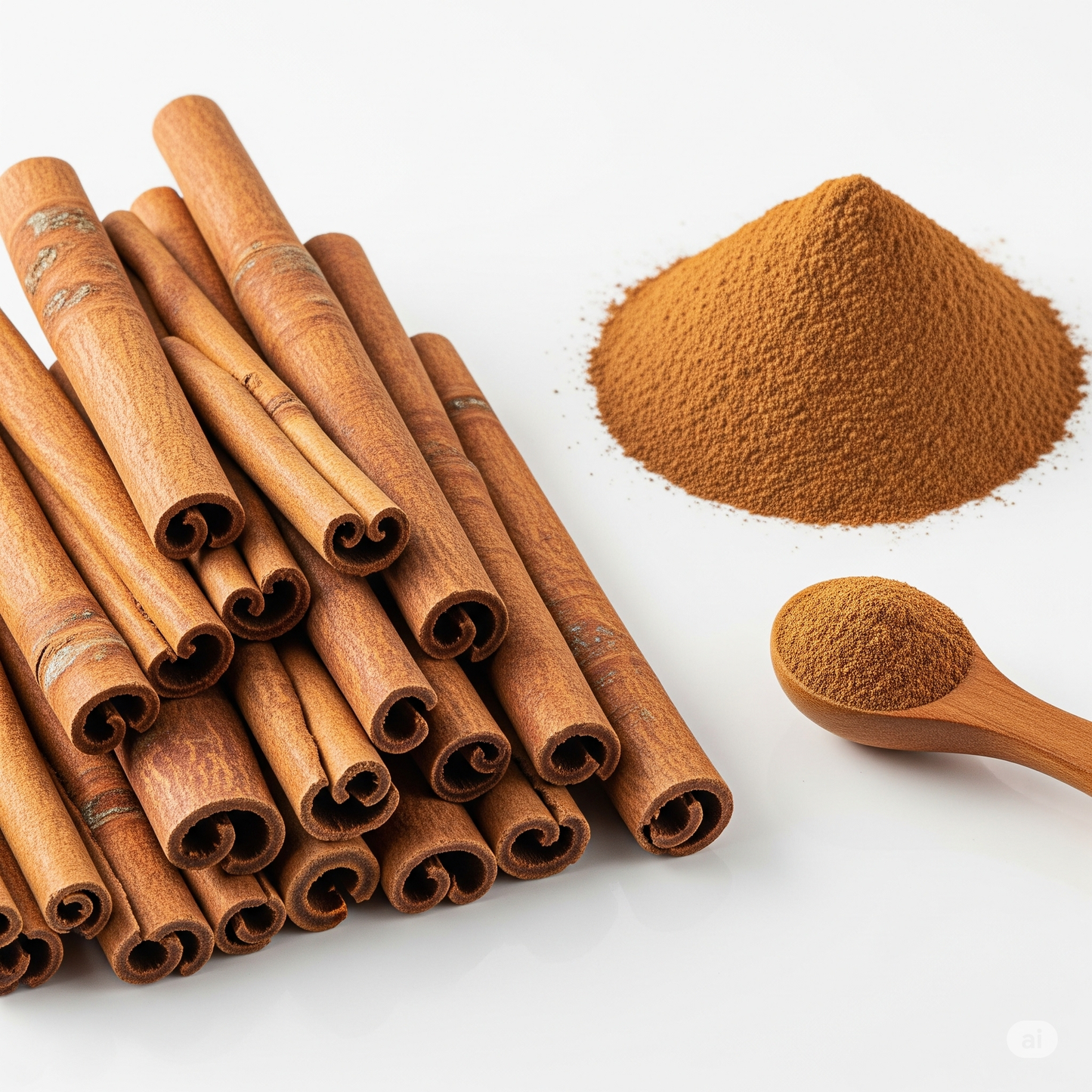Wadi
Cinnamon
Cinnamon
Couldn't load pickup availability
Primary Uses:
1. Culinary Uses:
- Baking: Cinnamon is a popular spice used in baking, especially in sweet treats like cinnamon rolls, apple pie, and snickerdoodle cookies.
- Cooking: Cinnamon can be used in savory dishes as well, such as in Indian and Middle Eastern cuisine. It pairs well with chicken, lamb, and rice dishes.
- Beverages: Cinnamon can be added to hot beverages like coffee, tea, and hot chocolate, as well as cold beverages like smoothies and milkshakes.
2. Flavoring Uses:
- Spices: Cinnamon is a common ingredient in spice blends like pumpkin pie spice and apple pie spice.
- Syrups and Sauces: Cinnamon can be added to syrups and sauces to add flavor, such as in cinnamon syrup for pancakes or cinnamon sauce for ice cream.
- Snacks: Cinnamon can be used to flavor snacks like popcorn, roasted nuts, and granola.
3. Aroma Uses:
- Candles: Cinnamon is a popular scent for candles, especially during the fall and winter months.
- Potpourri: Cinnamon can be added to potpourri blends to add a warm, spicy scent to a room.
- Essential Oils: Cinnamon essential oil can be used in aromatherapy to promote relaxation and reduce stress.
Other Uses:
1. Medicinal uses: Cinnamon is used in traditional medicine to treat various ailments such as digestive issues, respiratory problems, and menstrual cramps.
2. Religious uses: Cinnamon is used in many religious ceremonies and rituals, particularly in Hinduism and Buddhism.
3. Ornamental uses: Cinnamon is often used in wreaths, garlands, and other decorative arrangements due to its fragrant aroma and attractive appearance.
4. Insect repellent: Cinnamon oil is a natural insect repellent and is often used to repel mosquitoes, ants, and other insects.
5. Dyeing agent: Cinnamon can be used as a natural dyeing agent to create a range of colors, from light brown to dark red.
6. Folklore uses: Cinnamon has been used in various folklore traditions around the world, including as a symbol of wealth and prosperity.
7. Culinary garnish: Cinnamon is a popular spice used in many sweet and savory dishes, as well as in beverages such as tea and coffee. It is often used as a garnish to add flavor and aroma to dishes.
Caution:
1. Allergic reactions: Some people may be allergic to cinnamon, which can cause skin irritation, swelling, and difficulty breathing.
2. Liver damage: Consuming large amounts of cinnamon can cause liver damage, especially in people with liver disease.
3. Blood sugar levels: While cinnamon is known for its ability to lower blood sugar levels, consuming too much cinnamon can actually cause blood sugar levels to drop too low, leading to hypoglycemia.
4. Interaction with medications: Cinnamon can interact with certain medications, such as blood thinners and diabetes medications, which can cause adverse effects.
5. Coumarin content: Cinnamon contains a compound called coumarin, which can cause liver damage and increase the risk of bleeding in some people.
6. Digestive issues: Consuming too much cinnamon can cause digestive issues such as diarrhea, nausea, and vomiting.
7. Pregnancy and breastfeeding: Pregnant and breastfeeding women should avoid consuming large amounts of cinnamon, as it can cause uterine contractions and harm the fetus or infant.
Share


